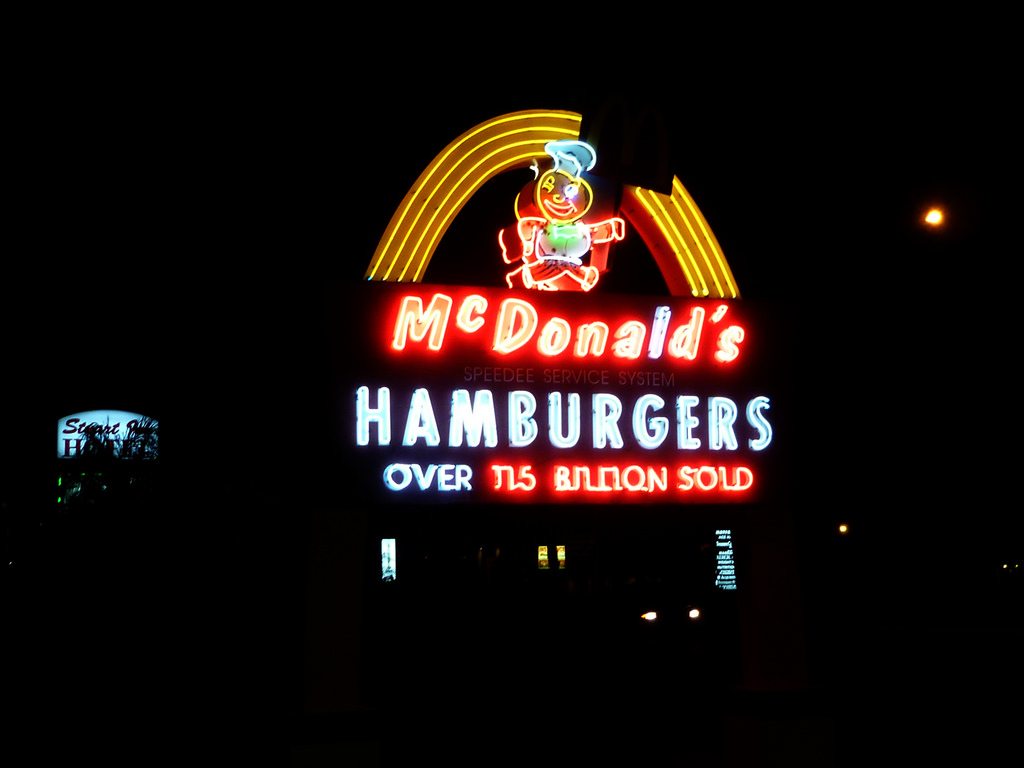
iStock/miodrag ignjatovic
The concept of offering empty restaurant space to remote workers was heavily hyped. Now that Spacious is folding, what will those restaurants do next?
Last week, co-working behemoth WeWork announced that Spacious, the restaurant-based subsidiary it acquired just four months ago, was shuttering. Since 2016, Spacious has partnered with dinner-only eateries in New York City to offer remote workers a daytime workspace. The concept was billed as a novel way to make good use out of otherwise empty real estate and attracted a flurry of optimistic coverage. (Disclosure: NFE operates out of a WeWork.) But now, the startup’s sudden folding—its last day is December 31—means the end of a valuable revenue source for associated restaurants.
Here’s how it worked: Spacious charged remote workers—a growing contingent of the workforce—$20 per day, up to $199 per month, to use desks (read: dining tables) at upscale restaurants throughout Manhattan and Brooklyn, and provided amenities like coffee, wifi, and power outlets. In exchange for giving the company daytime access to their dining rooms, restaurants received a percentage of the membership revenues they generated—a welcome financial cushion for New York City restaurants, which operate on notoriously razor-thin margins.
“That money went right to the bottom line,” says Brian Owens, owner of Crave Fishbar, a seafood restaurant with Manhattan locations on the Upper West Side and in Midtown East that each year face a 3.3 percent rent increase. “If I look at the increasing cost of doing business in New York City—between my rent just going up every year, minimum wage going up—[Spacious revenue] helped absorb some of these rising costs of doing business and now I’ve lost that.” Only the uptown location participated in Spacious.
Spacious simply monetized seating that would have gone empty for hours, covering coffee and member check-in while restaurants paid the added utility costs.
Space-sharing cost restaurants very little to participate, unlike typical revenue-boosting efforts like happy hours or prixe-fixe specials. Spacious simply monetized seating that would have gone empty for hours, covering coffee and member check-in while restaurants paid the added utility costs. Owens estimates that partnering with the startup added over $40,000 in revenue to his business in the past year. That’s more than a month’s worth of rent for Crave Fishbar’s uptown location. “It definitely hurts me financially,” he says, of the lost income.
The demise of Spacious also deprives restaurants of an organic marketing channel. By opening their doors to remote workers, restaurants were able to raise their profiles in the surrounding neighborhood.
“It was really a nice, symbiotic relationship,” says Meredith Mandel, director of operations at Hearth, an Italian-American mainstay in the East Village that opened in 2004 and began its Spacious partnership in the fall of 2018. “There were some folks who were not familiar with Hearth as Spacious members, who came to dine and that was a nice side effect.”People spend money on snacks while they work, and Jai’s observed working lunches turn into working happy hours turn into working dinners.
People spend money on snacks while they work, and Jai’s observed working lunches turn into working happy hours turn into working dinners.
Hearth is helmed by renowned chef Marco Canora, who has been vocal about the exorbitant cost of running a dining establishment in New York City. In 2014, he complained to The New York Times that his rent had jumped 65 percent in a single year—a volatility familiar to most local restaurants when a lease comes up for renewal.
Mandel declined to comment on how much revenue the Spacious relationship brought in, but told me it was high enough for the restaurant to consider replicating the model. “We will definitely pursue in one way or another continuing on this trajectory,” Mandel says. “The restaurant business is a challenge, especially in New York [City] and every little bit certainly helps.”
Like Mandel, Owens is looking at ways to sustain revenue from coworking.
One competitor, the three-year-old startup, Kettle Space, bills itself as an “affordable” co-working option with memberships ranging from $49 to $99 per month. Unlike Spacious, Kettle Space partners with some restaurants that are open during the day, and so prohibit workers from bringing in outside food.
“People are not only working in offices anymore, so [coworking] really brings a whole new clientele to the restaurant.”
Ajna Jai, manager of Pondicheri, an Indian restaurant in New York’s NoMad neighborhood, was at first reluctant to partner with Kettle Space because the idea of providing co-working space felt unfamiliar and vaguely threatening to Pondicheri’s identity as a restaurant. Now, she feels that she “probably should have started a little sooner.”
Jai says that the ban on outside food provides an additional source of revenue that eclipses the basic traffic income: People spend money on snacks while they work, and she’s observed working lunches turn into working happy hours turn into working dinners.
“People are not only working in offices anymore, so [coworking] really brings a whole new clientele to the restaurant,” says Jai. “Getting someone to walk into the doors is the hardest part.”
And yet some Spacious partners have decided to go back to being a restaurant, not a hybrid.
“We have been very happy with our partnership with Spacious and are sad to hear of their closing,” said Hannah Newton, private events manager of The Milling Room, an Upper West Side restaurant, in an emailed statement. “While we are disappointed, our primary focus first and foremost is the restaurant and that is how we generate the majority of our revenue.”
Spacious was acquired by its competitor WeWork in late August, as part of a spending spree meant to rapidly expand the co-working giant’s reach.
Spacious shut down its San Francisco operation in July, over regulatory uncertainty. At its height, Spacious was reported to have more than 20 partner restaurants in the two cities, combined, but some—including Daniel Boulud’s DBGB on Manhattan’s Lower East Side and B&B Hospitality Group’s La Sirena—have since closed.
Spacious was acquired by its competitor WeWork in late August, as part of a spending spree meant to rapidly expand the co-working giant’s reach. Shortly after, reports began to emerge that the company had grown too big too fast and, dogged by high costs and vacant real estate, was starting to crumble. In September, the company’s biggest backer ousted co-founder (and shoe eschewer) Adam Neumann. WeWork announced the closure of its for-profit school, the lay-off of thousands of workers, and the offloading of two other acquisitions back to their original founders. In November, Bloomberg reported that the U.S. Securities and Exchange Commission was conducting a preliminary inquiry into potential conflicts of interest in WeWork’s purchase of Spacious.
In a statement, WeWork said that the decision to shutter Spacious was driven by “renewed focus on our core workspace business,” and mentioned that soon-to-be-former Spacious members would be eligible for discounted WeWork memberships.










